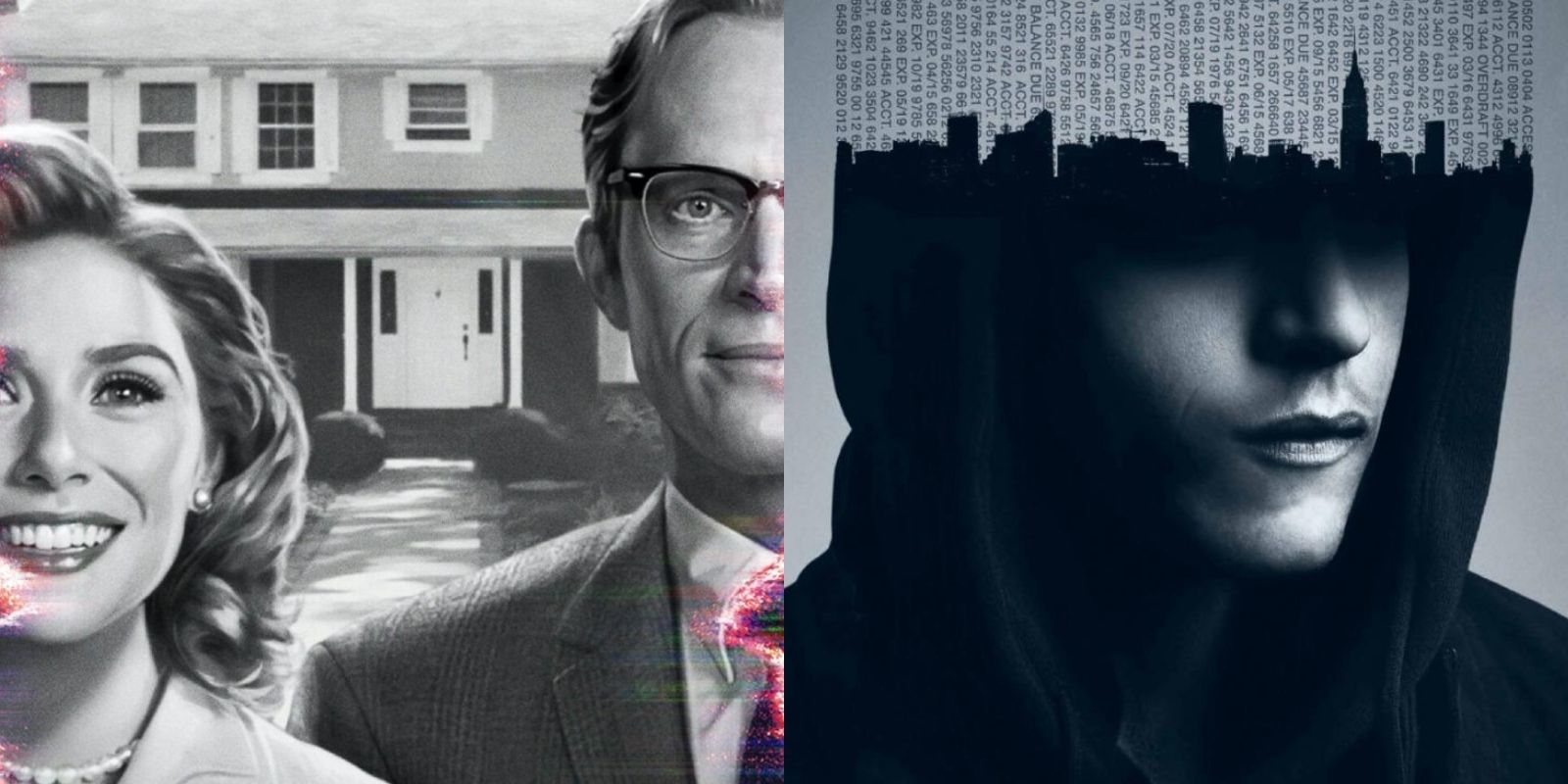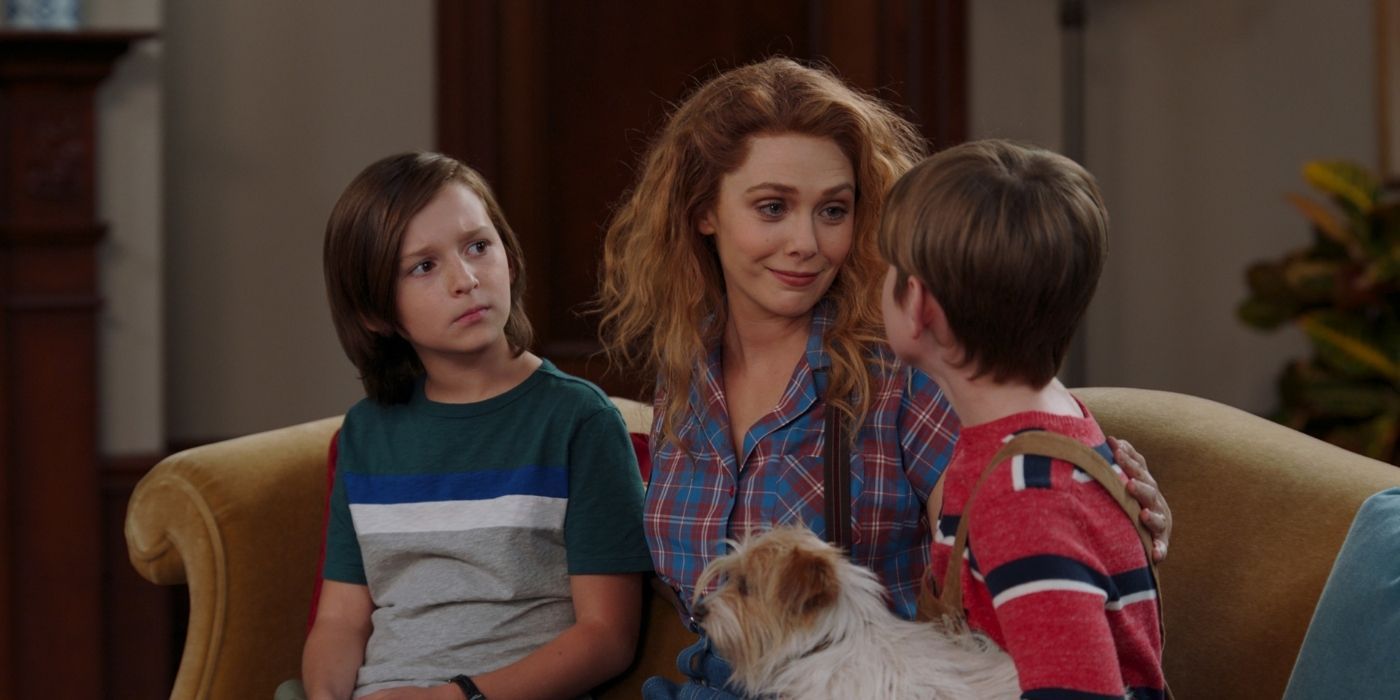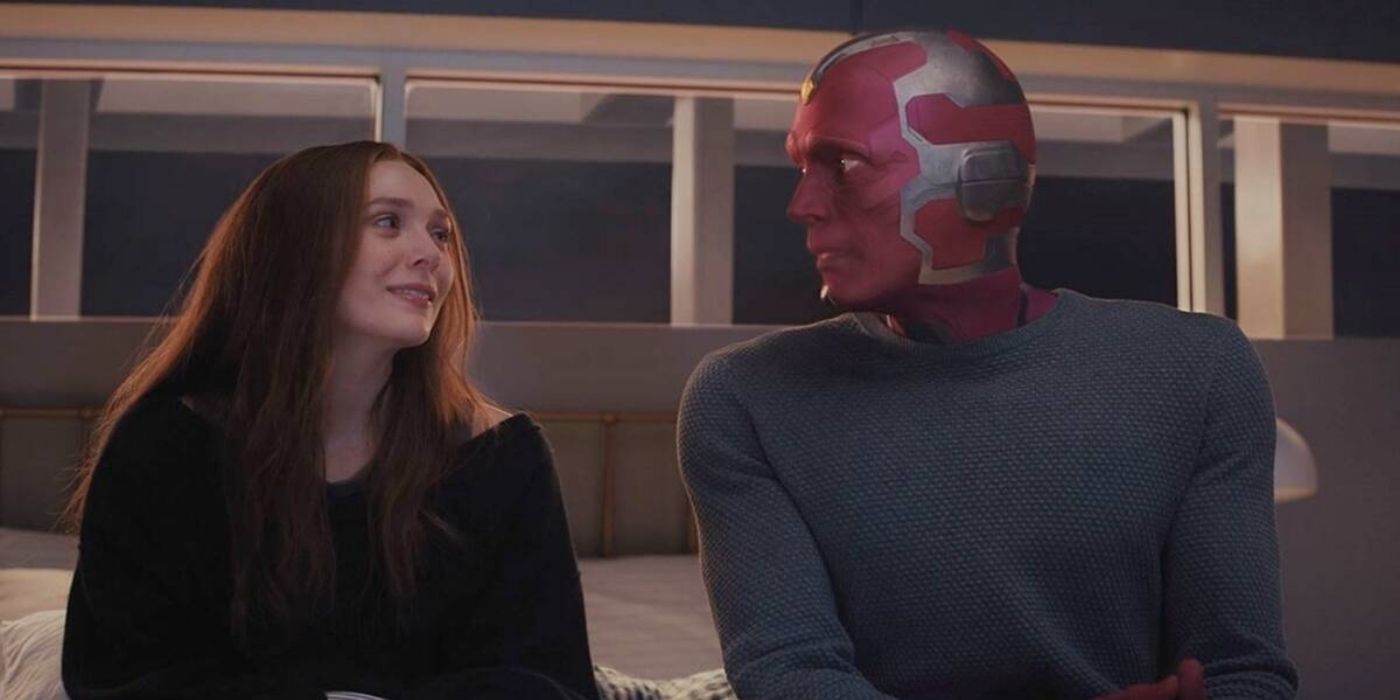Wanda Maximoff's origins, adapting the Scarlet Witch comics, are being brought to life in the Marvel Cinematic Universe via Disney+, and the result has been surprisingly clever at celebrating, parodying, and paying respect to the history of the medium of television. Its narrative about coping with grief is relatable on a very broad level in a way many Marvel stories don't typically explore. But a lesser-known yet well-respected TV series accomplished many of the things WandaVision has done in more nuanced and complex ways that are more grounded to reality, and its ideas are even more relevant now in 2021 than they were when the show finished in 2019.
Mr. Robot was a ground-breaking drama created by Sam Esmail, running for four seasons from 2015 to 2019. It's difficult to discuss what makes the show so compelling without spoiling its many context-altering twists and revelations, but by making some broad comparisons to WandaVision, it may be easier to explain why it could be a great show to look into after this experimental MCU story wraps up. While there won't be any big plot spoilers for Mr. Robot here, there will be some spoilers for WandaVision.
Wanda's abstract journey through her own past was explored in the episode "Previously On..." and it's presented via Agatha's point of view, using Wanda's powers as the bridge that makes the surreal way it's shown 'make sense.' The reveal of Agatha's 'true intent' almost ruined the show's core, but thankfully this episode was stern about rerouting things back to what really matters: Wanda's emotional journey. And it even managed to tidily do so with Agatha's motivations organically lining up with learning more.
That's as good a place as any to start comparing it to Sam Esmail's creation: making the way things are presented through television storytelling feel like an organic way to tell the story in question. But what if the elements that warp perceived reality are outside of the control of those forced to deal with the consequences?
The story of Elliot Alderson could not be told in any way other than television, and from the get-go, it is self-aware that those watching it have already experienced years and years of the medium of TV. The show's famous opening line, "Hello, friend," is a direct acknowledgment of the viewer, right at the start. The story 'breaks the fourth wall' in a multitude of ways during its run, often treating the audience as an unseen passenger who quite literally is watching events unfold, unable to directly interact with the story. This element by itself gradually becomes a recurring meta-theme of the story, a plot that highlights Elliot's skills at computer programming and hacking.
Without going into details (again, no plot spoilers here), there is even an episode further into Mr. Robot that is presented in exactly the same manner as earlier episodes of WandaVision: as if the story itself is taking place smack in the middle of a 90's sitcom, complete with perfectly edited intro credits and uncanny laugh tracks, and it's all significant to the main character's journey.
Late into the show's story, one bottle episode is delivered in such a way as to evoke the sensation of watching a stage play up close, accompanied by a live orchestra. Yet another episode is edited and filmed so as to give the illusion of one continuous long-shot showing different perspectives of an event unfolding in real-time. These latter two examples are arguably just the showrunners wanting to see what they do with the medium, though they are both very well produced and deliberately written. The 90's sitcom episode, however? It is exactly the kind of thing Wanda is doing in her situation, but the causes, means, and end result are quite different.
As the writers of WandaVision so eloquently put, in a moment that people all over will surely take away as the show's best quote, "What is grief, if not love persevering?" In many ways, Mr. Robot's story deals with grief, as well as conflict, and the many ways different people cope with it. But where Wanda might be struggling with the strangeness of the MCU, Elliot and others in his world are dealing with an alternate version of our own reality, one that gets shaken in 2015 by hackers fighting against big corporations.
Suffice it to say that especially after the year that was 2020, many of the events and ideas it expresses are much more applicable to what society is dealing with lately than those of Infinity Stones, Thanos snaps, and chaos magic. In a landscape where media keeps rushing to reinvent or revisit the next big bad villain, Mr. Robot's conflicts become increasingly more complex and relevant to real life, all without sacrificing the surreal edge of the unexpected.
A big part of WandaVision's success has been how it uses superhero tropes but weaves them around in a way that locks in on emotional depth as its core. Many who enjoy the romps of the MCU won't be able to get into Mr. Robot if only because Esmail's work demands more of the audience, actively expecting them to engage with what they are watching as they watch it. And WandaVision very well may have drawn inspiration from it in some ways - and if not, they certainly share similar intentions.
Those who have been enjoying the surprising tact, cleverness, and emotional exploration of WandaVision might feel like they've found a television show that's like a nice sandwich of food for thought. Mr. Robot could be the three-course meal those viewers could dig into next if they're still hungry for more. Many might be growing a bit tired of all of the reboots, rehashes, adaptations, and the like in a cycle built to perpetuate itself, but also find the style of storytelling WandaVision provides to be compelling and refreshing. Mr. Robot might be the next series to dive into for those who intersect here. It is television that actively takes advantage of how television itself functions and uses it to tell a compelling story in a way no other medium can.
Mr. Robot can be streamed via Amazon Prime. WandaVision can be streamed on Disney+.



